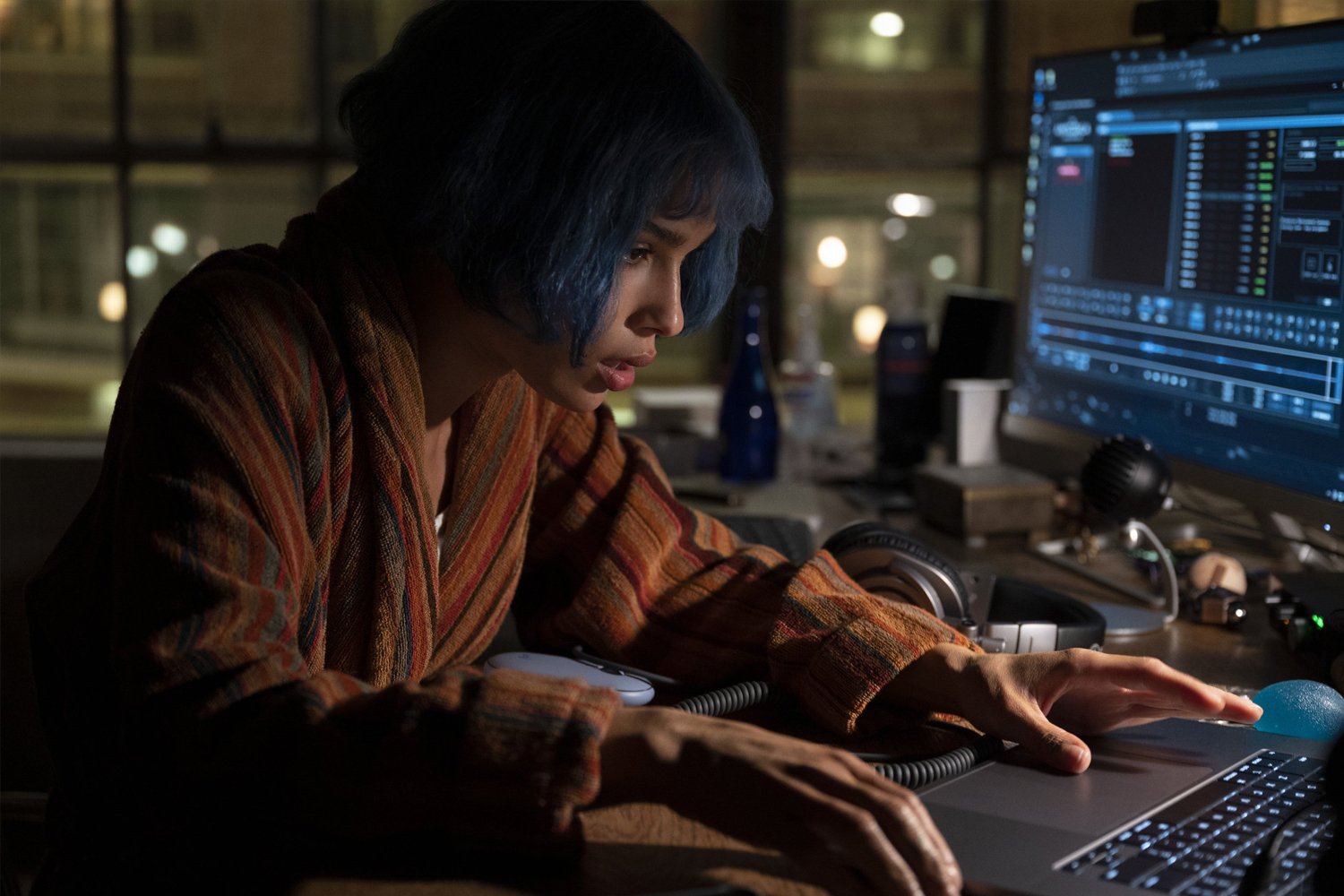Film Review: Kimi
Steven Soderbergh and his mastery of the 90-minute thriller
With his latest film Kimi, Steven Soderbergh appropriates the inelegance of pandemic dramas and tech gimmicks to craft a crackling paranoid thriller. With potency in the metaphors between the lines of its fleet predictability, Kimi bubbles with rage, teems with Soderbergh’s meticulous craft, and soars with a great Zoë Kravitz performance. Minor spoilers ahead…
There are two types of films that I recoil from the most: pandemic dramas, which reflect a cruel reality I would much rather escape from; and tech thrillers, which feel immediately dated and are often too cute by half in attempts to capture the zeitgeist. But leave it to Steven Soderbergh to craft a pandemic tech thriller that is not only immensely watchable, but a paragon of the 90-minute hair-raiser. Using technology not as a gimmick but as a window into our creeping surveillance state and the ubiquity of corporate malfeasance, Soderbergh’s Kimi crackles with paranoid energy and a determined performance from Zoë Kravitz.
It seems that ever since Soderbergh’s 2013 “retirement,” the esteemed filmmaker has been more prolific than ever. A classical artist who has embraced the digital, Soderbergh has spent the years after his supposed final feature - Side Effects - injecting his personal verve into tried-and-true formulas. Unsane and High Flying Bird - a psychological thriller and a sports drama, respectively - were both shot exclusively on iPhones; No Sudden Move, last year’s period crime caper, leaned heavily into distortion with its fisheye lenses. Even his latest foray into television, 2018’s little-seen murder mystery Mosaic, was paired with an app experience that unfolded through different perspectives. Kimi, Soderbergh’s latest, weaves its technology right into its narrative. Crossing a pastiche of paranoid thrillers - think Rear Window, Blow Out, or The Conversation - with a Google Alexa and an agoraphobic protagonist, Kimi might sound insufferably heavy-handed and conventional, but Soderbergh imbues his fleet genre exercise with energetic suspense and surprising substance.
“…Kimi crackles with paranoid energy and a determined performance from Zoë Kravitz.”
Zoë Kravitz stars as Angela Childs, an employee of tech giant Amygdala whose Alexa and Siri competitor Kimi boasts the human touch: in addition to algorithms, the company uses its workers to guide its robotic personal assistant along its learning curve. As one of these operators, Angela spends her day listening to anonymous streams and correcting interpretations of data; for instance, helping Kimi broaden its understanding of “paper towels” to include its British-English equivalent “kitchen paper,” or flagging an algorithmically unfriendly Taylor Swift song title. When Angela stumbles upon a particularly disturbing stream of a possible murder that implicates Amygdala in a sinister coverup, the company tries to silence her - permanently.
Kimi is a pandemic film, but COVID-19 isn’t used as a heavy-handed device or signifier; Soderbergh, along with David Koepp and his sharp screenplay, is much smarter than that. There is a singular, overt reference to the virus, but the film mostly allows Angela’s crippling agoraphobia to act as metaphor for lockdown anxiety and our prolonged social malaise. COVID, however, is written in the margins: Angela wears a mask when she dares to leave her home, even if she’s seemingly the only one who does so, and the stripped down office culture - including Zoom calls and ghost town cubicles - are stealthily placed reminders of the real world. Kimi’s pandemic storytelling, and its innate anger, bubbles between the lines of its genre convention, taking potshots at the specter of corporate self-interest that has only become clearer during the last three years. When Angela reports her concerns, Amygdala relays its canned response, which is less and less convincing each time it’s uttered: “We take this very seriously.” A felt parallel to the pervasiveness of misinformation and the real-life fidelity to stock prices over human lives, Kimi hammers home that the chasm between corporations and their civic duties has never been wider.
“Charmingly abrasive with a captivatingly investigative intelligence, [Zoë] Kravitz is an instant magnet for empathy.”
Zoë Kravitz shines as the energetic Angela. Charmingly abrasive with a captivatingly investigative intelligence, Kravitz is an instant magnet for empathy. Her Angela can be cold and rude - her patient lover (Byron Bowers) and her mother (Robin Givens) are frequently tested by her curtness - but she’s also alarmingly resourceful and strangely likable. As a survivor of an assault that triggered her agoraphobia, when Angela struggles to step through the threshold of her front door, we feel it. And Soderbergh’s wildly impressive camerawork (under the pseudonym Peter Andrews) matches Angela as she dances and zips through her spacious loft apartment, the only space in which she feels comfortable. With swerves, zooms, and shallow closeups, Kimi’s photography captures every nook and cranny with typical Soderbergh inventiveness, but it also captures the grey space between physical and digital spaces; it’s playful and tactile, but when Angela plugs in, everything fades into stillness and the vacuum of silence. There’s even something special about Cliff Martinez’s Hitchcockian score, which blares its brassy horns in a way that hasn’t induced this much nail-biting since Bernard Hermann.
Kimi hits familiar notes, but it mostly exists as a perfected 90-minute exercise in suspense. As it lurches into its chase-filled denouement, the film reaches into an inventory that Chekhov would love; things of murky significance that Koepp has littered throughout its runtime - a throbbing toothache, a creepy neighbor, mentions of a rowdy protest, and a conveniently-mentioned nail gun - all come back to pay handsome dividends. Steven Soderbergh, with his unique bag of tricks, is first and foremost an entertainer, and the genius of Kimi lies within its simplicity. As a pandemic drama, it works. As a tech thriller, it works. Soderbergh understands that timeliness isn’t just about simple depiction, but mood and evocation; Kimi hits that nail on the head.













